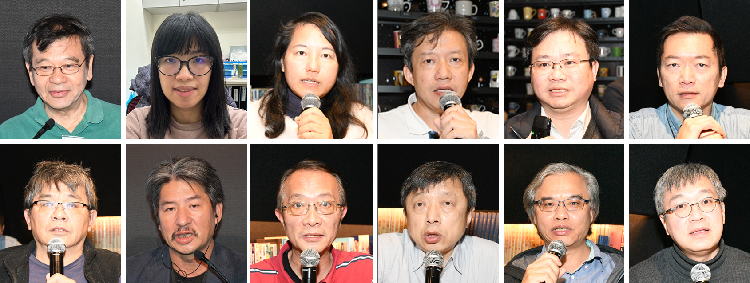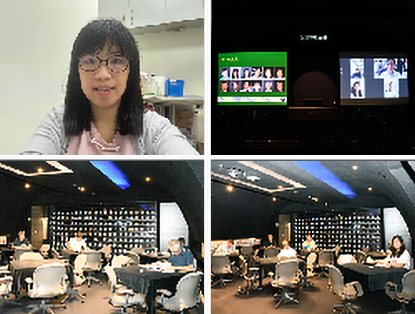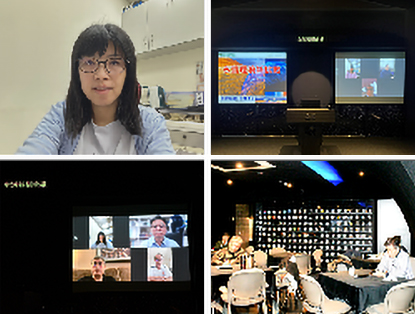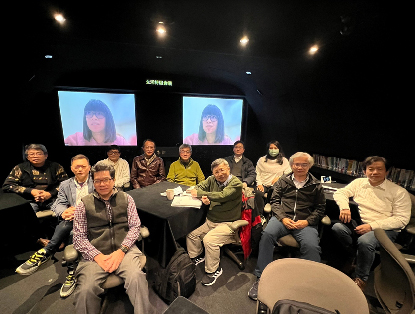Archilife Living Special Team ConferencesDate: 2025-01-14
Section: Special Team Conferences | 生活特組現階段任務為利用兩至三年時間,根據氣候異變演變趨勢與疫後新世界將面臨的挑戰進行發想與研討。為達成前述任務,生活特組於113年持續召開會議,就相關議題進行研討。生活特組由蘇慶華教授指導;組長為鄭瑋寧小姐;組員包括:湯淑貞小姐、鍾政勳先生、蔡坤憲先生、羅陽青先生、高傳棋先生、戴永禔先生、林得恩先生、王文安先生、劉定衢先生、陳泰安先生等。茲將各階段研討成果說明如下:

The Living Special Team’s current task is to conceptualize and discuss challenges that arise as a result of the evolution of climate change and the new post-pandemic world. To achieve the above, the Living Special Team continued to hold meetings in 2024 to discuss pertinent issues. The Living Special Team is led by Professor Su Ching-hua, with Ms. Cheng Wei-ning as the team leader, and its members include Ms. Tang Shu-chen, Mr. Chung Cheng-hsin, Mr. Tsai Kun-hsien, Mr. Luo Yang-ching, Mr. Gao Chuan-chi, Mr. Day Yeong-tyi, Mr. Lin De-en, Mr. Wang Wen-an, Mr. Liu Ding-chyu, and Mr. Chen Tai-an, among others. The outcomes of the discussions for each phase are as follows:
 自113年1月5日起至6月28日止,召開113年上半年特組會議,此階段的研究方向為疫後新世界氣候、健康、科技挑戰與因應。氣候方面主要挑戰為極端天氣破壞基礎建設、威脅糧食生產;因應方案為重新訂定基礎設施風險閾值、建構多元農業生產模式。健康方面主要挑戰為全球性傳染疾病發生週期縮短、生態系統破壞驟增;因應方案為提升人類身體機能、降低生態環境破壞。科技方面主要挑戰為數位落差加劇、全球產業供應鏈重組;因應方案為加強數位基礎設施、重新訂定產業發展策略。 自113年1月5日起至6月28日止,召開113年上半年特組會議,此階段的研究方向為疫後新世界氣候、健康、科技挑戰與因應。氣候方面主要挑戰為極端天氣破壞基礎建設、威脅糧食生產;因應方案為重新訂定基礎設施風險閾值、建構多元農業生產模式。健康方面主要挑戰為全球性傳染疾病發生週期縮短、生態系統破壞驟增;因應方案為提升人類身體機能、降低生態環境破壞。科技方面主要挑戰為數位落差加劇、全球產業供應鏈重組;因應方案為加強數位基礎設施、重新訂定產業發展策略。
The Living Special Team conferences for the first half of 2024 were held between January 5 and June 28, 2024. During this phase, the research direction focused on the challenges and coping with post-pandemic new world climate, health, and technology. Climate-related challenges include extreme weather, which damages infrastructure and threatens food production. Response plans include redefining infrastructural risk thresholds and developing a diversified agricultural production model. In terms of health, the main challenges are the shortened cycle of global infectious diseases, as well as a drastic increase in ecosystem destruction. Response plans include improving human physical functions and reducing ecological damage. In terms of technology, the most significant challenges are the widening digital divide and the restructuring of global industrial supply chains. Response plans include improving digital infrastructure, reestablishing industrial development strategies.
 自113年7月5日起至12月27日止,召開113年下半年特組會議,此階段的研究方向為環境演變趨勢、物質文明調適與精神文明初探。環境演變方面,全球沸騰時代來臨,減緩策略已無法遏止環境惡化,未來應著重調適策略的研擬與相關行動方案的執行,設法提高存活機率。物質文明調適方面,應藉由SDGs、ESG等作為,降低對環境的破壞,並依循One Health理念,建構健康、永續的生活環境。精神文明方面,該組研判數位科技將重新定義、形塑未來人類精神文明的意涵與表徵。 自113年7月5日起至12月27日止,召開113年下半年特組會議,此階段的研究方向為環境演變趨勢、物質文明調適與精神文明初探。環境演變方面,全球沸騰時代來臨,減緩策略已無法遏止環境惡化,未來應著重調適策略的研擬與相關行動方案的執行,設法提高存活機率。物質文明調適方面,應藉由SDGs、ESG等作為,降低對環境的破壞,並依循One Health理念,建構健康、永續的生活環境。精神文明方面,該組研判數位科技將重新定義、形塑未來人類精神文明的意涵與表徵。
The Living Special Team conferences took place in the second half of 2024, from July 5 to December 27. The research direction at this stage focused on the trends of environmental change, the adaptation of material civilization, and an initial exploration of spiritual civilization. In terms of environmental change, an era of global upheaval is upon us and mitigating strategies can no longer prevent environmental degradation. In the future, the emphasis should be placed on developing adaptation strategies and implementing appropriate action plans with the goal of increasing survival rates. We should reduce environmental damage through the SDGs and ESG, and other frameworks, and adhere to the One Health principle to create sustainable and healthy living environments in the context of adapting material civilization. In terms of spiritual civilization, the Team believes that digital technology will redefine and shape the implications and representations of future human spiritual civilizations.
 展望未來,生活特組將持續根據氣候異變演變趨勢,研擬因應疫後新世界挑戰的策略與行動方案,期能提供祐生作為擘畫下一個永續新世界的重要指引。 展望未來,生活特組將持續根據氣候異變演變趨勢,研擬因應疫後新世界挑戰的策略與行動方案,期能提供祐生作為擘畫下一個永續新世界的重要指引。
Looking ahead, the Living Special Team will continue to develop strategies and action plans to address the challenges of the new post-epidemic world, based on evolving trends of climate change, with the hope that they will serve as an important guide in the transition to the next sustainable world.
|
|